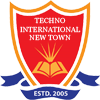An Intellectual Property Right (IPR) Cell has been created in Techno International New Town under the Institutions Innovation Council-TINT to look after the activities related to the Intellectual Property of the University, Evaluation and filling of patents, copyrights and design. The main objective of intellectual property cell is to encourage innovation and to provide incentives for innovation by granting protection to inventors that will allow them to recover research and development investments and reap the benefits of their inventions for a limited period of time.
Preamble
Intellectual property plays an important role in providing a competitive edge to an organization. The intangible assets of an organization - such as knowhow, inventions, brands, designs, and other creative and innovative products - as of today, are more valuable than its physical assets. Keeping this in mind, this Intellectual Property Rights Policy Document (hereinafter referred to as the IP Policy, TINT) of the Institute seeks to provide guidance to academic and non-academic staff, students, scholars, and outside agencies on the practices and the rules of the Institute regarding intellectual property rights (IPR) and obligations which include the nature of intellectual property (IP), its ownership, exploitation, technology transfer, and confidentiality requirements. The policy laid down in this document is expected to fulfill the commitment of the Institute to promote academic freedom and provide a conducive environment for research and development.
Objectives of the IP Policy
• To impart knowledge about intellectual property rights to faculty, staff, scholars, and students.
• To lay down a transparent administrative system for assessing the ownership and assignment of intellectual property.
• To facilitate the faculty members, staff members, research scholars, and students to obtain IP.
• To explore possible commercialization of the IP owned by the Institute.
• To frame guidelines regarding share and revenue earned for the Intellectual Property between the inventor and the Institute.

Techno International New Town
(Formerly known as Techno India College of Technology)
Admission Helpdesk: +919674112076/2079
